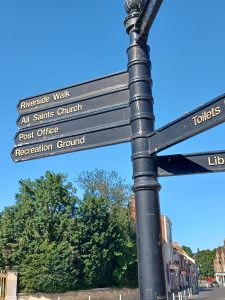Petition – Back to school shouldn’t mean leaving nature
As the summer holidays have come to an end, ZSL is calling on the government to ensure every child’s right to access nature while at school.
As schools up and down the country have spent the week welcoming back children fresh from a summer spent climbing trees, building sandcastles and playing football in the park, conservation charity ZSL is calling on the UK government not to let their time in nature end with the summer holidays.
Despite spending 190 days a year in school, too many children – especially those in deprived areas – are missing out on the proven benefits to wellbeing, focus and mental health that nature brings.
ZSL, the international conservation charity behind London and Whipsnade Zoos is asking people to support by signing a petition to show the UK government that making access to nature compulsory in schools will benefit both children and the planet.
The charity is advocating for access to nature to become a statutory part of every child’s education. That means proper funding for outdoor learning equipment, such as wellies and waterproofs, training for teachers, and support for schools to develop their own wild spaces or establish partnerships with local parks and green areas.
“This is about pushing for systemic change so that every child, wherever they live or whatever their background, can benefit from daily contact with nature. Access to Nature shouldn’t be an optional add-on in schools, but a core right,” said Cat Hickey, ZSL’s Head of Conservation Education.
Research consistently shows that time outdoors helps pupils build resilience, improve their attention, strengthen their cognitive abilities, and find calm. When a pupil notices the change in leaf colour, listens to birdsong or builds a den, they’re not only playing – they’re developing the foundations for lifelong wellbeing.
Cat continued: “Teachers, parents and guardians know better than anyone the toll poor mental health is taking on young people. NHS referrals are climbing, and the pressure is being felt in classrooms. Yet one of the simplest and most effective supports for children’s wellbeing is right outside the school door – the natural world.”
Government data shows that only half of young people regularly spend time outside of school in gardens or green areas. Those who would benefit most, particularly those under significant pressure, often have the least access. ZSL acknowledges that while many teachers wish to incorporate nature into their lessons, limited resources and inadequate training in outdoor education often prevent this from happening.
The gains would go far beyond the classroom. The government estimates £2.1bn a year could be saved in health costs if everyone had access to green space. Schools would also benefit from improved mental health, stronger post-16 progression, and lower NEET (Not in Education, Employment, or Training) rates.
Cat concluded: “Some pupils will have returned to school full of stories about camping trips, forest walks, and spotting wildlife. Others may have returned without a single memory of green space. If we are serious about equity – and about preparing the next generation for the biodiversity and climate challenges ahead – outdoor learning cannot remain for the few but must be made accessible for the masses.”
It is essential to remember that the pupils exploring nature today will be the citizens shaping environmental policy tomorrow.
Sign the petition here: https://www.change.org/p/make-access-to-nature-a-statutory-right-for-every-school-child
More to explore on Bee Local Magazine
- Central Bedfordshire Students rock the stage at Beds Band Factory!
- Central Bedfordshire Council takes new step to bring empty high street units back into use
- Hidden Meadow, New Stage and Fresh Line Up
- Half Term Fun in Leighton Buzzard
- Beauty and Obsession – The Red Shoes
More Leighton Buzzard Guides
- Keep The Fairy Tale Alive
- Family Days Out in Bedfordshire
- Baby and Toddler Groups in Leighton Buzzard
- Best Venues for Hire in Leighton Buzzard
- Best Places to Live in Leighton Buzzard
- Leighton Buzzard Schools Guide
- Leighton Buzzard Parks and Play Areas Guide
- Leighton Buzzard Restaurant Guide 2025
- Leighton Buzzard Green Initiatives Guide
- Our Guide to the Biggest Annual Events in the Leighton Buzzard area
- 5 Farm Shop Cafes to Visit in Beds and Bucks
- Dog Friendly Leighton Buzzard

